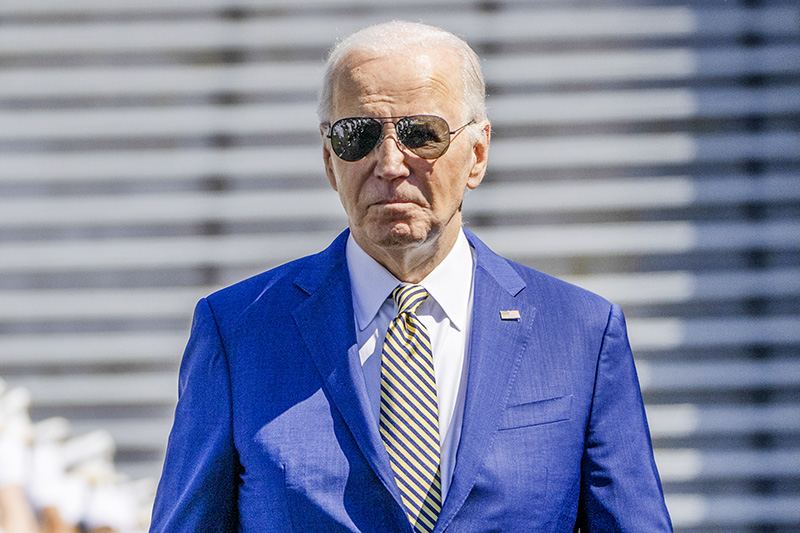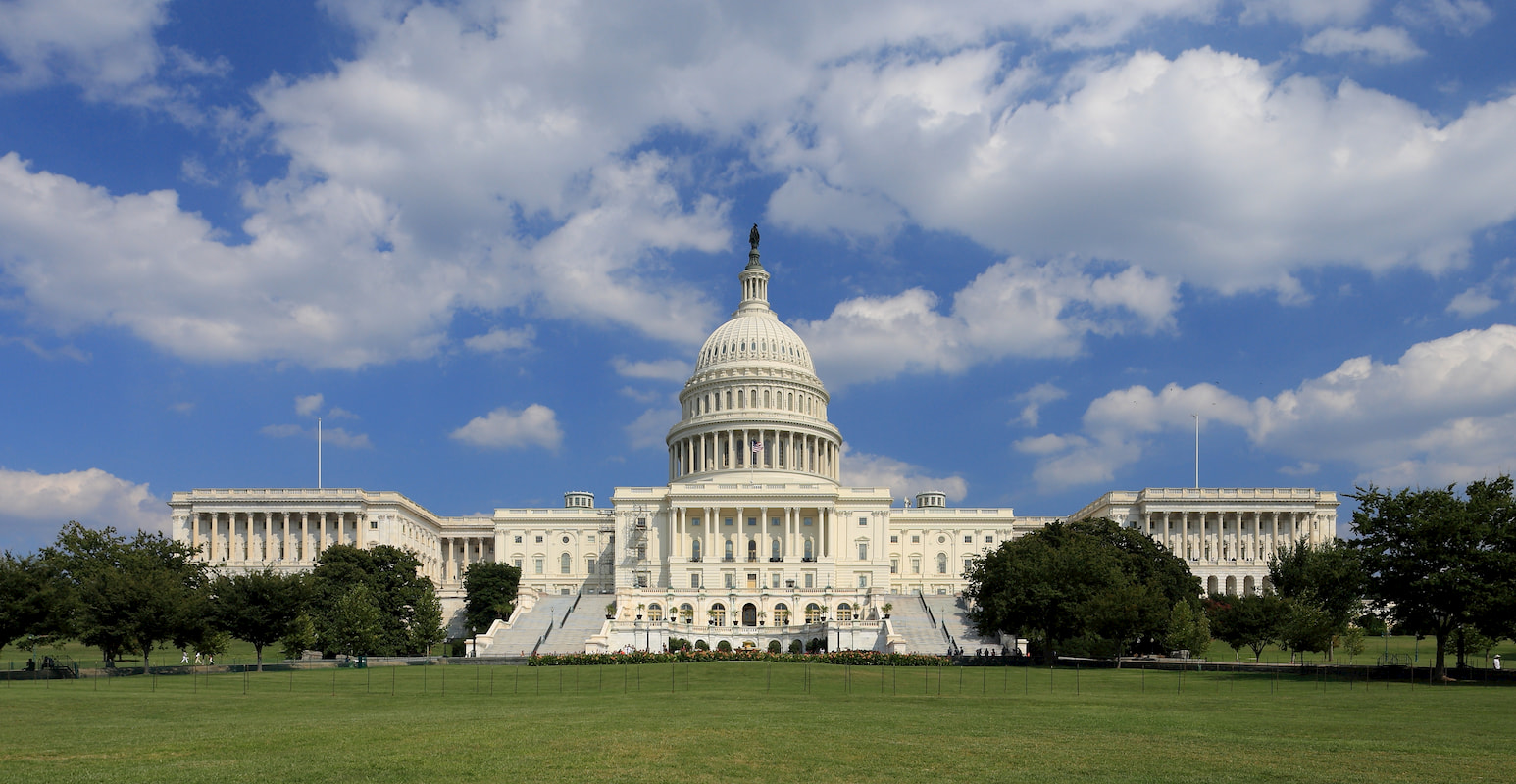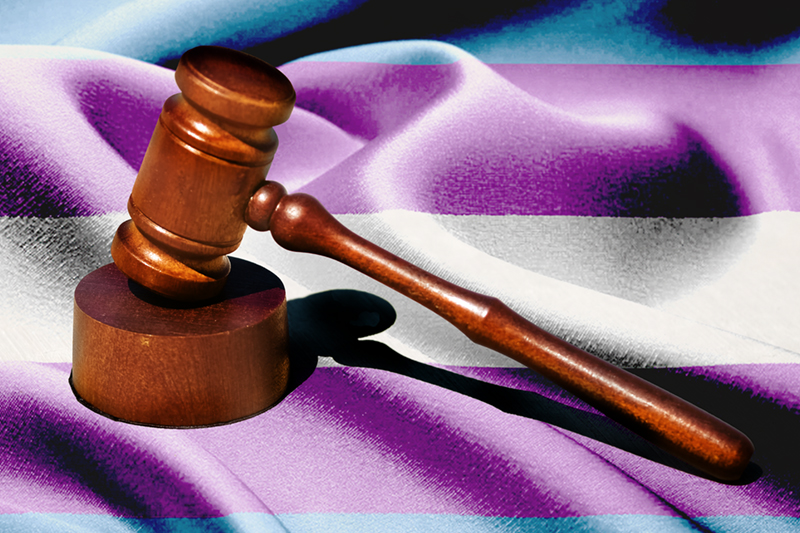Supreme Court says Trump administration should be allowed to carry out its transgender military ban
Court's ruling lifting injunctions will allow Pentagon to begin discharging certain transgender service members

On Tuesday, the U.S. Supreme Court ruled that President Donald Trump and the U.S. Department of Defense should be allowed to ban certain transgender people from joining or staying in the military, even as lower courts remain skeptical about the ban’s constitutionality.
The Supreme Court did not rule on the merits of a ban, but did lift injunctions on two lower court rulings — the Karnoski case out of Washington State and the Stockman case out of California — that had blocked the Trump administration from implementing such a ban.
Lower court judges had previously determined that the plaintiffs — which include a number of transgender recruits and active-duty military members — would suffer irreversible harm through the loss of their livelihoods and military benefits if the Trump administration were to begin discharging them.
The decision allows the Pentagon to begin moving to discharge those transgender-identifying people who have been diagnosed with gender dysphoria or who have undergone a gender transition by receiving hormones or undergoing gender confirmation surgery.
Under the so-called “Mattis Plan,” proposed by former Secretary of Defense Jim Mattis last year, such people are classified as being unable to be deployed at a moment’s notice and thus are viewed as an obstacle to military readiness.
Meanwhile, lower courts could still rule the policy unconstitutional, which would send the case back to the Supreme Court to rule on the ban’s merits. The 9th U.S. Circuit Court of Appeals is expected to issue a ruling on the ban’s constitutionality in the coming months.
Many observers had initially thought the Supreme Court would defer to lower-level rulings and not allow the Trump administration to leapfrog the lower courts. But all five Republican-appointed justices on the court voted to lift the injunctions, while the four Democratic-appointed justices said they would have kept the injunctions in place.
The Trump administration was dealt a small loss, however, in a separate order where the high court refused to grant its request to immediately hear the challenges to the transgender ban.
Both GLBTQ Legal Advocates and Defenders, and the National Center for Lesbian Rights, which are representing plaintiffs in a challenge to the ban out of Washington, D.C. as well as the Stockman case, expressed disappointment with the court’s ruling, even as they noted the Trump administration did not get everything it wanted.
“In declining to hear these cases, the Supreme Court saw through the administration’s contrived efforts to gin up a national crisis,” Jennifer Levi, the director of GLAD’s Transgender Rights Project, said in a statement. “Unfortunately, the Court’s stay of the lower courts’ preliminary order means that courageous transgender service members will face discharges while challenges to the ban go forward.”

But Levi also expressed skepticism that the president would eventually succeed in getting approval to institute a permanent ban, adding: “The Trump administration’s cruel obsession with ridding our military of dedicated and capable service members because they happen to be transgender defies reason and cannot survive legal review.”
Both organizations have argued that even the “Mattis Plan” — which the government has attempted to cast as different from a broad-based ban — discriminates against a certain group of people based solely on their identity, and not their individual abilities.
“Our country owes a debt of gratitude to the thousands of transgender people serving in our armed forces,” said NCLR Legal Director Shannon Minter. “Multiple federal courts have recognized that excluding qualified individuals simply because they are transgender is contrary to basic constitutional principles of equality and fairness. We are confident the courts will ultimately protect the integrity of our nation’s military and hold that transgender service members must be evaluated based on the same standards applied to all others, not barred from service based on a characteristic that has no relevance to their fitness to serve.”
Lambda Legal, which is representing transgender plaintiffs in the Karnoski v. Trump case out of Washington State, called the Supreme Court’s two rulings “perplexing to say the least” — on the one hand refusing to hear legal challenges before all lower court options have been exhausted, and on the other, allowing the ban to move forward despite the risk of being overturned, which would create a number of legal and logistical headaches for the military in future years.
“For more than 30 months, transgender troops have been serving our country openly with valor and distinction, but now the rug has been ripped out from under them, once again,” Lambda Legal Counsel Peter Renn said in a statement. “We will redouble our efforts to send this discriminatory ban to the trash heap of history where it belongs.”
GLAAD President and CEO Sarah Kate Ellis argued that allowing the ban to go into effect while it’s being challenged in court will only place more transgender service members at risk of discrimination or harassment.
“Not only is the Trump administration creating a dangerous environment for transgender service members, but they are also weakening the strength of our military and setting a dangerous precedent that puts the safety of our soldiers and nation’s military readiness in jeopardy,” Ellis said in a statement. “The American people believe that all qualified patriots willing to serve their country in uniform should be able to do so without intimidation or discrimination, and while the court’s decision today is a setback, fairness and equality must prevail in the end.”
Editor’s note: This is a developing story.
Support Metro Weekly’s Journalism
These are challenging times for news organizations. And yet it’s crucial we stay active and provide vital resources and information to both our local readers and the world. So won’t you please take a moment and consider supporting Metro Weekly with a membership? For as little as $5 a month, you can help ensure Metro Weekly magazine and MetroWeekly.com remain free, viable resources as we provide the best, most diverse, culturally-resonant LGBTQ coverage in both the D.C. region and around the world. Memberships come with exclusive perks and discounts, your own personal digital delivery of each week’s magazine (and an archive), access to our Member's Lounge when it launches this fall, and exclusive members-only items like Metro Weekly Membership Mugs and Tote Bags! Check out all our membership levels here and please join us today!


























You must be logged in to post a comment.